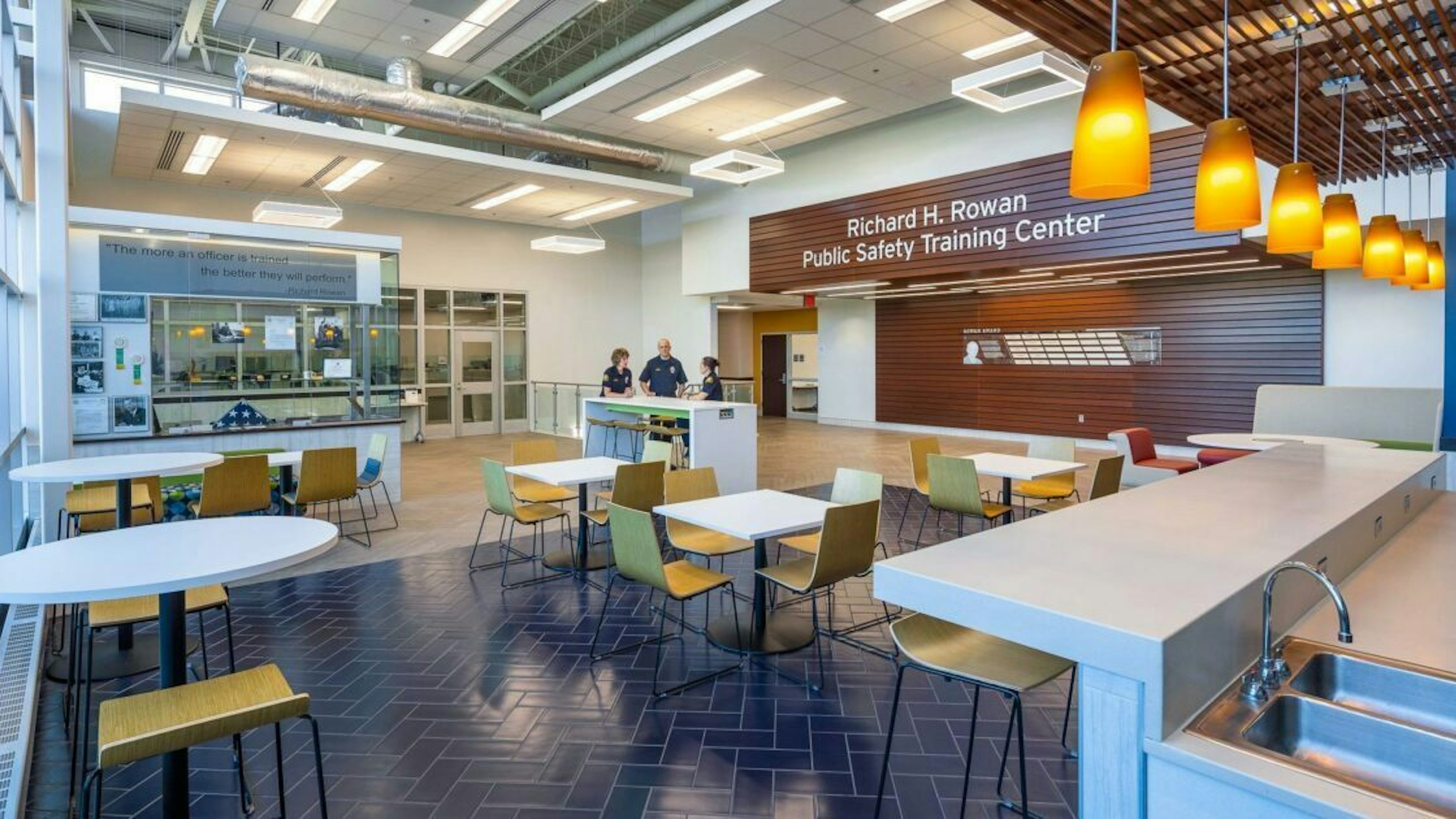
Over the last few years, there has no doubt been a shift toward virtual and remote environments. The digital transformation trend has not only affected the way we work, learn and socialize but has also significantly transformed the operations of correctional and judicial spaces. Courtrooms, social service centers, city halls, police stations, jails and more are all rapidly changing to meet the needs of this technology shift.
At Wold, we’ve witnessed many of these changes. Clients often ask our team how to best integrate technology into their facilities to enhance both the environment and the user experience. Most recently, the Minnesota Department of Corrections contacted our team to address how the virtual environment is changing services specifically within correctional facilities and determine what adjustments should be made. Our team is finding solutions to address the question, “How does the virtual world impact those who are coming and going from state prisons?”
We have seen the profound impact of virtual environments on these crucial spaces and how these transformations are reshaping the future of correctional and judicial facilities. Here’s how these virtual environments are making an impact:
Improved courtroom efficiency and access to justice
Until recently, Minnesota judges rarely considered virtual courtrooms as a desirable or viable solution but were forced to implement digital solutions to continue the court’s duties during the pandemic. While there are certainly limitations to virtual court proceedings, these environments reduce the need for physical transportation of inmates, saving on operational costs and minimizing security risks. For more sensitive circumstances, like family court or domestic abuse proceedings, significant advantages arise when the opposing parties are physically separated. Over the last three years, we have seen incredible benefits from keeping these parties from having to appear in court at the same time through the utilization of technology.
Many court hearings pertain to minor matters that traditionally required a physical presence. Technology promotes equal access to justice by dissolving the requirement for in-person appearances and offering the option to participate via technology – which is a smartphone for many court participants. For many people, it is tough to juggle schedules and maintain good standing at work when needing to take several hours off for a court appearance. Instead, defendants can receive a text when their case is being called, alerting them to dial into Zoom. They can be back to work a few minutes later. A virtual option makes it easier for those who lack flexibility and often improves results for the defendant by significantly reducing the number of bench warrants issued for failure to attend.
Opportunities for increased staff training and simulations
Virtual environments are invaluable for training law enforcement personnel and correctional staff. They provide realistic scenarios for training exercises, allowing for better preparedness in crisis situations. Systems such as virtual reality (VR) and virtual tours empower staff members, including emergency response teams, security officers, healthcare professionals and administrative staff, to gain a better understanding of the spaces they will occupy before they are physically in the spaces.
Our team helped design the City of St. Paul Richard Rowan Public Safety Training Facility, a state-of-the-art space that features a reconfigurable scenario-training suite with movable walls and a multitude of simulated environments. In this suite, virtual training takes place via 5-sided, hexagon-shaped video screens, where operators can change various plotlines based on the specific training scenario. This capability empowers law enforcement personnel to swiftly navigate and make decisions in simulated scenarios that closely mirror the real-world situations they may encounter.
Reduced isolation and increased access to care
In some instances, inmates in correctional facilities can maintain connections with the outside world via Zoom rooms and virtual meeting spaces, reducing feelings of isolation. Virtual capabilities also offer significant opportunities and improved access to those seeking mental health care and therapy. Psychiatrists and counselors can schedule virtual appointments with their clients in a safe and secure space and without risking their safety. With telehealth also on the rise, doctors can meet with patients in a timely manner, providing quicker and safer access to care.
Although convenient and secure, virtual capabilities do not always take the place of in-person connections. In fact, studies show the negative effect virtual meetings can have on children of incarcerated parents. Because of this, correctional and detention facilities are starting to consider having in-person family visiting areas. Individuals struggling with mental health challenges may find it difficult to trust or believe someone they see on a screen, often preferring face-to-face interactions to discern the truth. For those reasons, it’s important to ensure there are spaces designated for both in-person and virtual options.
The adoption of virtual environments in correctional and judicial spaces represents a significant shift in the way society now functions. While the transformation offers numerous benefits, it is important to consider its associated challenges. By doing so, we can harness the full potential of virtual environments to create more accessible, efficient and inclusive systems that better serve our communities and enhance the future of criminal justice and social services.
At Wold, we’re committed to implementing virtual capabilities into our designs to advance and positively impact the communities we serve. If you want to learn more about our experience and capabilities or need additional information about how we can assist you with your correctional and judicial facilities, please reach out to our team by calling 1-888-254-6789 or emailing info@woldae.com.